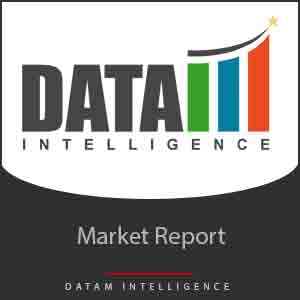
Covid -19 Impact Analysis Non-Woven Fabric Market
Nonwovens used in the manufacture of such big-ticket consumer products like automobiles, furniture, carpets and rugs declined.
2021-10-27
The outbreak of COVID-19 caused businesses and manufacturing facilities to close, resulting in a lack of economic activity. Consumers globally focus on essential commodities and personal protective equipment as governments create economic packages for SMEs and other benefits. As a result, COVID-19 is likely to have a minimal negative impact on the non-woven fabric market's growth.
The COVID-19 pandemic has had an overall mixed impact on the non-woven fabric industry in 2020, pushing suppliers to rapidly adapt to both the high demand for crucial end-use products and the limitations of stay-at-home orders and a recession economy. As a result, non-wovens demand is expected to decline slightly in 2020, as gains in the medical market offset losses in building and construction, automotive and commercial products, among others.
US demand for medical nonwovens spiked 12% in 2020 as demand surged for a range of non-woven-based products, personal protective equipment (PPE) such as face masks and medical gowns, as well as disinfecting wipes. Hence, non-woven manufacturers around the globe are expanding their production capacity and investing in machinery to manufacture healthcare essentials in response to the COVID-19 pandemic. For instance, in July 2020, Fitesa announced plans to install a new meltblown production line to supply raw materials for the production of N95 face masks. A particular company in Chengdu city of southwest China's Sichuan province was reported to produce 2.2 tonnes of melt-blown nonwovens per day to meet the demand for face mask production.
The U.S.-based Berry Global Group, a global supplier of a broad range of innovative rigid, flexible and non-woven products announced that it was prioritizing the production of non-woven healthcare products at its Nanhai and Suzhou facilities in China, which are used to manufacture products that can help protect against airborne particles like the coronavirus
In response to COVID-19, Ahlstrom-Munksjo boosted non-woven production across its whole protective materials line in April 2020. The company has increased its protective material offerings for all three types of face masks: civil, surgical, and respiratory masks.
Demand for non-wovens has been substantially reduced in many other applications, offsetting the medical industry spike since firms deemed "non-essential" were shuttered in many areas in an attempt to limit the spread of the virus. As a consequence: Non-wovens used in the manufacture of such big-ticket consumer products as automobiles, furniture, carpets, and rugs declined. Economic uncertainty caused consumers and commercial enterprises to limit investment in building construction, where losses in non-wovens demand were steep.
Moreover, since the COVID-19 outbreak has worsened, face masks and N95 respirators have been in short supply. In addition to an increasing order backlog, most stocks generally held by manufacturers, wholesalers, and distributors have been exhausted. Existing UNICEF suppliers could not meet UNICEF's demand for IPC and PPE supplies due to extremely high demand and restricted supply availability.
Manufacturers in China have indicated that their production lines are up and running but depend on access to raw materials, highlighting the concern and the importance of securing the raw materials for face masks, gowns, and coveralls. Furthermore, the government of India has extended its export ban to all PPE products, including raw materials, such as non-woven fabrics used to manufacture face masks and other protective clothing. An export ban has followed in many other countries. Hence, the pandemic had a significant negative effect on the non-woven fabrics market and the y-o-y growth rate was -0.89% in the year 2020. However, as the pandemic subsided and most manufacturing and construction segments were returning to growth, demand across the board returned to growth rates more in line with those seen before the pandemic.
About Us:
DataM Intelligence was incorporated in the early weeks of 2017 as a Market Research and Consulting firm with just two people on board. Within less than a year, we have secured more than 100 unique customers from established organizations all over the world.
For more information:
Sai Kiran
Sales Manager at DataM Intelligence
Email: [email protected]
Tel: +1 877 441 4866
Website: www.datamintelligence.com
Found it interesting?
Sai Kiran
Sales Manager at DataM Intelligence
Email: [email protected]
Tel: +1 877 441 4866
We have 5000+ marketing reports and serve across 130+ countries
